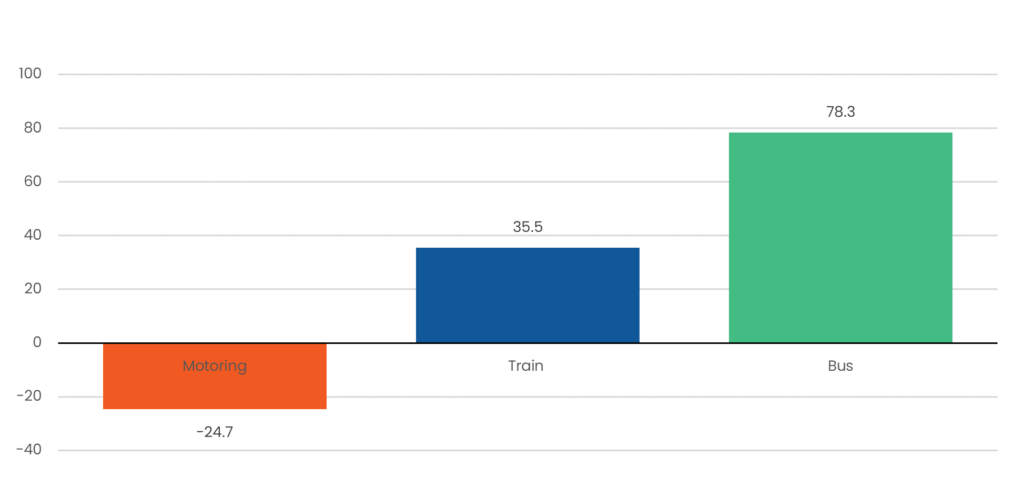Fair transport pricing
Rebalancing public transport prices to be cheaper than driving or free would help to create a significant shift away from car use.
Using public transport should be cheaper than driving. But over recent decades, public transport fares, and in particular bus fares, have risen far ahead of the cost of living, while car use has become cheaper in real terms.
Percentage change in travel cost 1999-2017

Percentage change in the real-terms cost of UK transport from 1999 to 2017, SPICe report, 2019
This is particularly problematic for ethnic minorities who have been disproportionately impacted when it comes to transport costs. A Runnymede Trust briefing shows how public transport costs have driven up living costs for ethnic minorities 32% compared to only 10% for white people.
We must rebalance prices to incentivise public transport over private car use.
For instance, the €49 a month ‘Deutschlandticket’ in Germany introduced in mid-2023 has led to a 25% rise in passengers on regional rail services over its first three months, and there are now 11 million people now using these tickets. The ticket allows as much travel as the user wants on most buses, and local, suburban and regional trains. A report by Greenpeace outlines proposals for a new monthly ‘climate card’ subscription-based rail pass that would simplify the train ticketing system, make fares fairer and encourage rail travel to help reduce emissions.
The policy in this chapter on free bus travel would be a big step forward, but cheaper and better train services are also needed, alongside policies which make the cost of motoring more fully reflect the costs imposed on society – see for instance policies on Workplace Parking Levies and a climate-based MoT levy.
For further information:
- Wheels of change: Promoting fair and green transport in rural Scotland, IPPR, June 2024, https://www.ippr.org/articles/wheels-of-change
- Stuck in Traffic – Meeting the Programme for Government Commitments on Sustainable Transport, Transform Scotland, 2022, https://transform.scot/wp-content/uploads/2022/09/Stuck-in-Trafficreport- 2022.pdf

